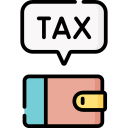
Today’s Theme: Innovative Approaches to Tax Planning for High-Income Earners
Welcome! We’re diving into innovative approaches to tax planning for high-income earners—fresh structures, smarter timing, and human stories that turn complexity into control. Subscribe for future explorations, and share your own breakthroughs so we can all learn, iterate, and build wiser, more resilient wealth together.
Innovative tax planning reframes taxes from a year-end scramble into a year-round strategy. Instead of reacting, you architect entity choices, cash flows, and incentives that align with how you earn, invest, give, and live—unlocking options that standard checklists routinely miss.
Why Innovation in Tax Planning Matters Now
Saving two percent annually may feel minor, but over 15 years it can represent a major funding source for future ventures, philanthropic gifts, or early financial independence. Innovation compounds, especially when applied consistently across income streams, asset location, and intelligent timing.
Why Innovation in Tax Planning Matters Now
Thoughtful combinations of operating entities, holding companies, and joint ventures can separate risk, clarify accounting, and open distinct tax elections. The goal is not complexity for its own sake, but elegant simplicity that matches real-world economics and protects both capital and optionality over time.
Entity Design and Income Engineering
Investment Tax Alpha and Asset Location
Tax-inefficient assets like high-yield bonds or actively traded strategies often fit better in tax-deferred accounts, while long-term, low-turnover equity can shine in taxable accounts. Matching asset characteristics to account types turns location into a repeatable, quiet source of after-tax outperformance.

Philanthropy as a Planning Engine
By aggregating multiple years of giving into a single high-income year via a donor-advised fund, you may restore itemization and unlock larger deductions. Then grant thoughtfully over time. This structure converts a spike in income into enduring support for causes you care about.
Philanthropy as a Planning Engine
Contributing appreciated stock or crypto (where accepted) can avoid embedded capital gains while still generating a charitable deduction where rules allow. The result is often higher net impact than cash, with more flexibility to rebalance your portfolio around a values-aligned mission.
Philanthropy as a Planning Engine
After a liquidity event, one founder transferred appreciated shares to a donor-advised fund before closing, then created a scholarship network for first-generation engineers. The plan reduced taxes and funded mentorship programs that now outlive the transaction. What legacy would you build? Tell us below.
Cross-Border and Mobility Planning
01
Residency, Domicile, and Day Counting
Small differences in days, ties, and intent can change tax residency. Thoughtful tracking, pre-move planning, and treaty analysis help avoid accidental dual-residency surprises. The goal is clarity: know which rules apply before you cross borders, not after a letter arrives.
02
Sourcing Income and Permanent Establishment Risk
Where income is considered earned can shift with contracts, management locations, and client activity. Be mindful of permanent establishment triggers, withholding obligations, and payroll rules. Innovation is foresight—design how and where work happens to match both business needs and tax obligations.
03
A Remote Executive Finds Balance
A tech executive split time between two countries, restructured days, and rerouted client work to avoid an unintended permanent establishment. With better tracking and coordination, taxes stabilized, and family life improved. If you’ve navigated mobility, share tips other readers can use.
Legacy, Trusts, and the Family Enterprise
Strategies like SLATs, GRATs, and installment sales to intentionally defective grantor trusts can shift growth outside an estate while maintaining control features. The art lies in matching tools to your family’s story, risk tolerance, and philanthropic ambitions—never just chasing acronyms.
Legacy, Trusts, and the Family Enterprise
Family meetings, charters, and education programs reduce conflict and help heirs understand both the privilege and responsibility of wealth. Taxes become a classroom where values, history, and decision-making frameworks are passed forward with humility and clarity.

Risk, Ethics, and Documentation
Maintain contemporaneous records, board minutes, appraisals, and substantiation for charitable gifts and valuations. Organize digital files by entity and year. Clear documentation turns stressful questions into straightforward answers and preserves the credibility that innovative planning requires.




